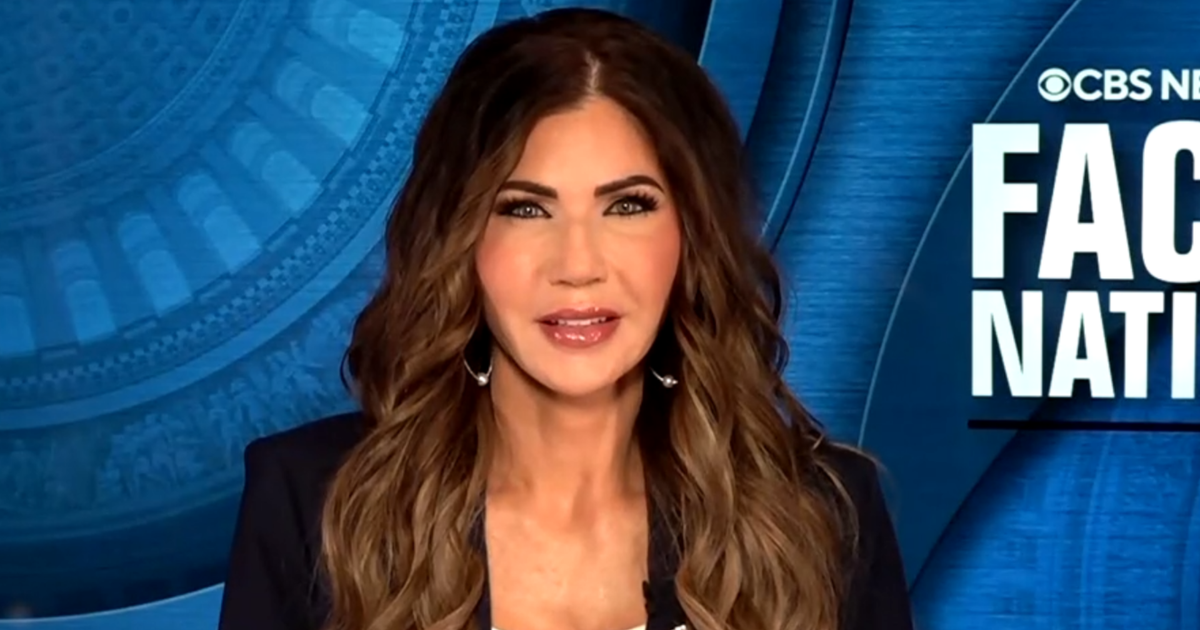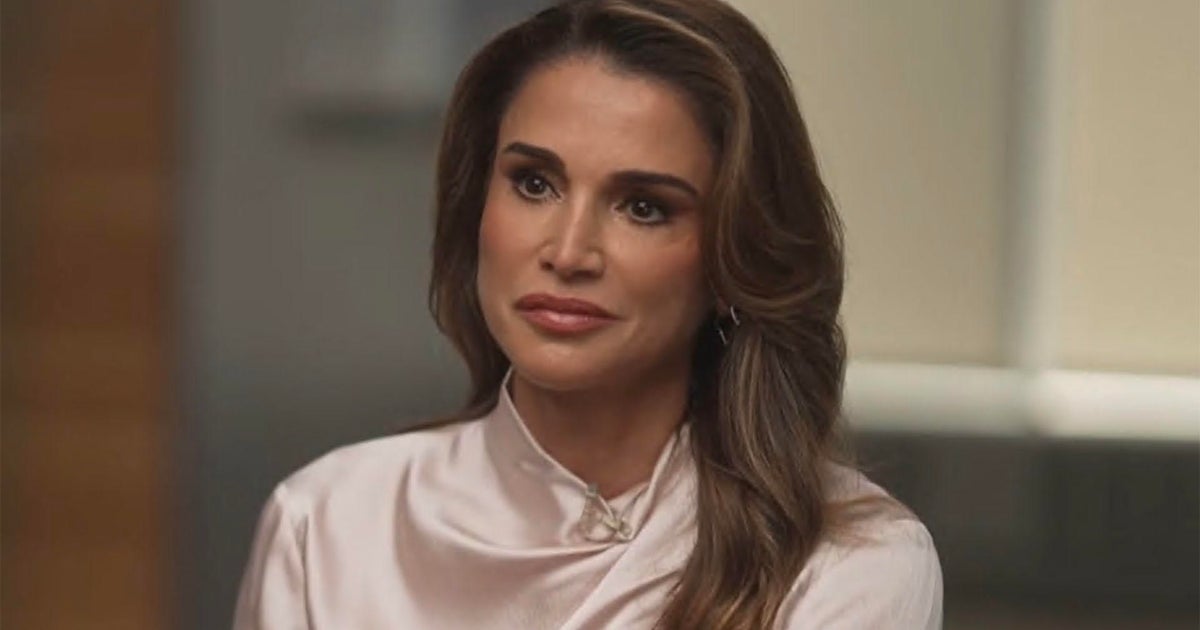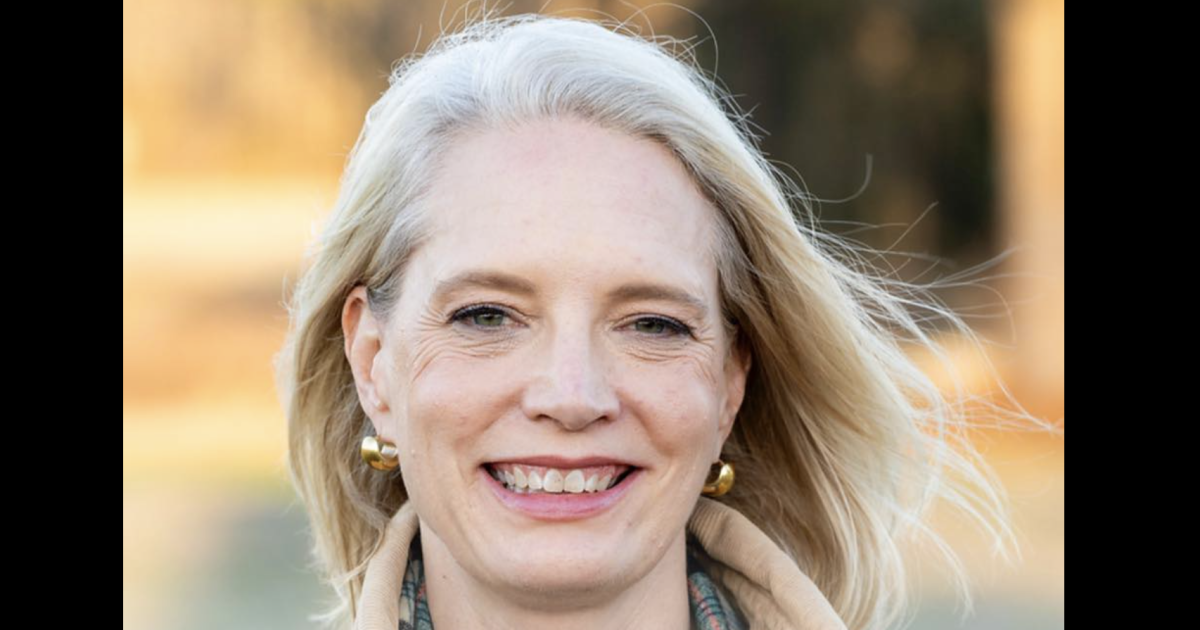Moncef Slaoui, Trump's vaccine chief, "very concerned" about GOP vaccine hesitancy
Washington — Moncef Slaoui, the former scientific head of Operation Warp Speed during the Trump administration, said he's "very concerned" and perplexed by hesitancy among some Republicans to take COVID-19 vaccines, and encouraged former President Donald Trump and GOP leaders to engage GOP voters to convince them of the vaccines' efficacy and safety.
"I think it's really concerning that there are hesitations in the population and we need to work very hard regardless of the political positioning of people, that people understand that vaccines are very important and are going to help us really manage and control this pandemic," Slaoui said on "Face the Nation" on Sunday. "I'm very concerned, very concerned that for political motivation, people decide to actually place themselves and the people around them in harm's way by refusing to be vaccinated."
Slaoui added that "we need to do every effort we can to explain to people that vaccines have nothing to do with politics. These vaccines are safe. They are highly effective."
CBS News polling shows Republicans are the most likely group to say they don't want the vaccine, which could pose a challenge to reaching herd immunity in the U.S. A recent CBS News poll found 34% of Republicans say they will not be vaccinated against the coronavirus, compared with 30% for independents and only 10% of Democrats.
Moderator Margaret Brennan asked why Republicans are hesitant to take vaccines for which Mr. Trump has taken credit, given Operation Warp Speed's role in incentivizing their development and production.
"Frankly, I don't know. It's beyond my rational thinking. I'm a scientist, not a politician, but I would hope that President Trump and others in the Republican Party should really work hard to engage more Republicans to accept to be vaccinated. It's the right thing to do," Slaoui replied.
Slaoui also said he thinks it makes a difference that Mr. Trump was vaccinated privately in January, unlike other top officials like former Vice President Mike Pence, who received their shots on camera.
"I think people project images and can convey important messaging," Slaoui said. "I saw that, for instance, the prime minister in the U.K., with the AstraZeneca unsafety, I think two days ago was immunized in public and said this vaccine is safe. All the data show it's safe. I'm going to take it. And that's very, very important."
Mr. Trump has said that, without him, a vaccine would not have been developed for years. Asked about this comment, Slaoui said he's "convinced" that Operation Warp Speed accelerated the timeline by supporting the development of multiple vaccines at once.
"I think the operation has helped accelerate the development of a number of vaccines, by either creating more financial incentive for a company like Pfizer or for the other five companies by actually accelerating, participating operationally into the development of the vaccine," he said. "And also, of course, financing the research and development. I am convinced that vaccines would have come later and certainly less vaccine if only Pfizer had made it. Clearly they were able to develop this vaccine on their own."
Brennan asked if Slaoui feels as if he's stigmatized for his time in the Trump administration.
"Frankly, with time, the one thing I want to focus on is I feel extremely fortunate to have been able to help and participate to allow us to have vaccine and control this pandemic. That's the only thing that counts," Slaoui said. "There were moments, frankly, where I told myself, oh my God, why did I get myself into this? But they never lasted long because the mission is way more important than than those emotional moments."
"I do believe that it's a mistake to politicize a health issue. It's a big mistake," he continued. "Many people probably have died or suffered because the whole situation became so political that, you know, emotions overtook rationality. But at the same time, I have to say, I'm so glad that all the ecosystem of the pharmaceutical biotechnology, academic research really immediately coalesced together and worked tirelessly to make vaccines in a period of 10 months, which is just extraordinary."


